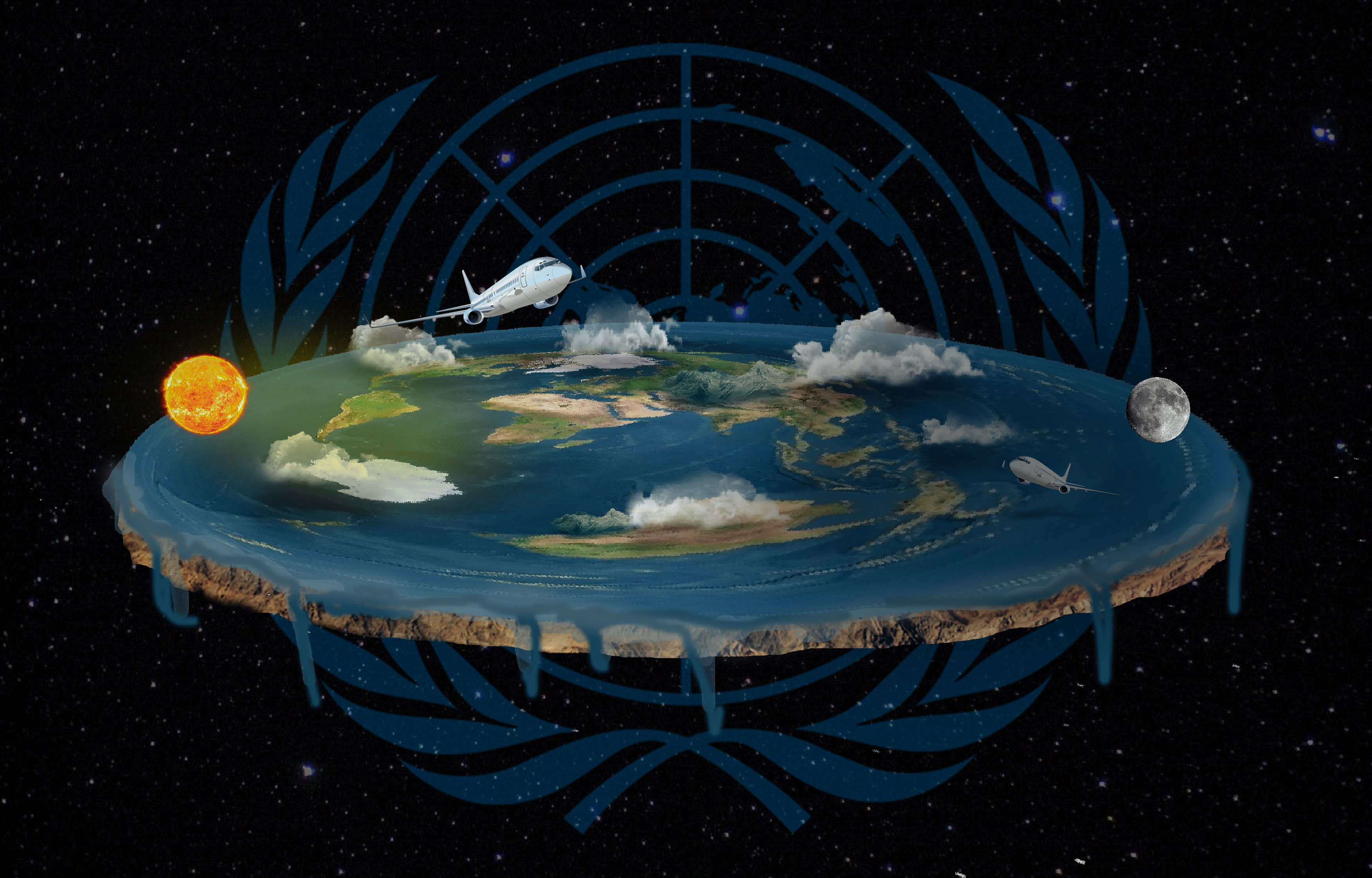Does the Bible say the earth is round? This question has sparked debates among scholars, theologians, and science enthusiasts for centuries. It’s a topic that touches on faith, history, and our understanding of the world. If you’ve ever wondered whether the Bible explicitly states that the earth is round, you’re not alone. This article dives deep into the scriptures, historical context, and modern interpretations to give you a clear answer. So, let’s get started and unravel the mystery!
People often assume that the Bible is outdated when it comes to scientific knowledge. But is that really true? As we explore this question, you’ll discover how ancient texts can still hold relevance in today’s world. Whether you’re a devout Christian, a curious skeptic, or simply someone who loves exploring big ideas, this article has something for everyone.
By the end of this piece, you’ll have a better understanding of what the Bible really says about the shape of the earth. We’ll also touch on why this topic matters in today’s conversations about science and religion. So, buckle up and let’s dive into the scriptures!
Read also:Chris Motionless Wife The Untold Story That Shook The Internet
Understanding the Context: What Does the Bible Actually Say?
Before we jump into specifics, it’s important to understand the context in which the Bible was written. The Bible is a collection of ancient texts that were penned over thousands of years. During this time, the understanding of the world was vastly different from what we know today. Yet, some passages in the Bible hint at a more advanced knowledge of the earth’s shape.
Exploring Key Verses About the Earth
One of the most famous verses that people reference in this debate is Isaiah 40:22. In this verse, it says, “It is he who sits above the circle of the earth, and its inhabitants are like grasshoppers; who stretches out the heavens like a curtain, and spreads them like a tent to dwell in.” Notice the word “circle”? Some argue that this is a clear indication of the earth’s roundness. However, others point out that the Hebrew word used here, “khug,” can also mean “circuit” or “arc.”
Another passage that’s often mentioned is Proverbs 8:27, which says, “When he established the heavens, I was there; when he drew a circle on the face of the deep.” Again, the word “circle” appears, but its meaning isn’t as straightforward as it might seem in English.
Historical Perspectives on the Earth’s Shape
Long before science confirmed the earth’s roundness, many ancient cultures had their own theories about its shape. The Greeks, for example, were among the first to propose the idea of a spherical earth. But what about the ancient Hebrews? Did they share this knowledge?
Did Ancient Hebrews Know the Earth Was Round?
The short answer is: probably not in the way we understand it today. The ancient Hebrews, like many other civilizations at the time, viewed the world through a combination of observation and religious beliefs. Their understanding of the cosmos was shaped by their spiritual practices and the texts they revered.
That being said, some scholars believe that the Hebrews might have had a rudimentary understanding of the earth’s curvature. This could explain why certain passages in the Bible use terms like “circle” to describe the earth. However, it’s essential to remember that these texts were written in a poetic and metaphorical style, which can make interpretation tricky.
Read also:Brigitte Macron Young Pictures A Look Into Her Youthful Journey
Science vs. Scripture: Is There a Conflict?
One of the biggest debates surrounding this topic is whether the Bible and science can coexist. For some, the idea that the Bible doesn’t explicitly state the earth is round might seem like a contradiction. But is it really?
Why the Bible Isn’t a Science Textbook
It’s crucial to recognize that the Bible wasn’t written as a scientific manual. Its primary purpose is to convey spiritual truths, moral lessons, and historical narratives. While it may touch on scientific topics, its focus is on matters of faith and relationship with God. This doesn’t mean the Bible is wrong; it simply means it has a different purpose.
Think about it this way: Just because the Bible doesn’t spell out the laws of gravity doesn’t mean it denies their existence. Similarly, the absence of a clear statement about the earth’s roundness doesn’t invalidate the Bible’s teachings.
Common Misconceptions About the Bible and Science
There are several misconceptions floating around about the Bible and science. Some people believe that the Bible promotes a flat earth, while others think it’s completely silent on the topic. Let’s clear up these myths once and for all.
Does the Bible Promote a Flat Earth?
Contrary to popular belief, the Bible doesn’t explicitly teach that the earth is flat. While some verses might seem to suggest this idea, they’re often taken out of context or mistranslated. For example, the phrase “four corners of the earth” appears in several passages, but scholars agree that this is a metaphor for the earth’s extremities, not a literal description of its shape.
In fact, many early Church fathers, such as Augustine and Origen, rejected the idea of a flat earth. They understood that the Bible’s descriptions of the world were symbolic rather than scientific.
What Modern Science Tells Us
Thanks to advancements in science, we now know beyond a doubt that the earth is round. But how does this knowledge fit with the Bible’s teachings? Let’s take a closer look at the relationship between science and faith.
The Role of Faith in Understanding Science
For many believers, faith and science aren’t mutually exclusive. Instead, they see science as a way to deepen their understanding of God’s creation. By studying the natural world, they gain a greater appreciation for the complexity and beauty of the universe.
So, does the Bible’s lack of explicit statements about the earth’s roundness mean it’s outdated? Not necessarily. Many argue that the Bible’s focus on spiritual truths makes it timeless, regardless of scientific discoveries.
Why Does This Question Matter Today?
In today’s world, where science and religion often clash, questions like “Does the Bible say the earth is round?” take on new significance. They force us to examine our assumptions and consider how we approach both faith and knowledge.
The Importance of Dialogue Between Science and Religion
Rather than viewing science and religion as opposing forces, many people advocate for a dialogue between the two. By engaging in open discussions, we can gain a deeper understanding of both fields and find common ground.
For example, some scientists are also people of faith who believe that their work enhances their spiritual journey. They see no contradiction between their belief in God and their pursuit of scientific knowledge.
Practical Takeaways: What Can We Learn?
Now that we’ve explored the question of whether the Bible says the earth is round, what can we take away from this discussion? Here are a few key points to keep in mind:
- The Bible wasn’t written as a scientific textbook, but it still contains valuable insights about the world.
- Some passages in the Bible hint at the earth’s roundness, but their meaning isn’t always clear.
- Science and faith can coexist, and many people find meaning in both.
- It’s important to approach questions like this with an open mind and a willingness to learn.
Final Thoughts: Where Do We Go From Here?
In conclusion, the question of whether the Bible says the earth is round is more complex than it might seem at first glance. While the Bible doesn’t explicitly state the earth’s shape, it does offer a poetic and metaphorical view of the world that can still resonate with readers today. By embracing both faith and science, we can gain a richer understanding of the universe and our place in it.
We invite you to share your thoughts in the comments below. Do you think the Bible provides enough evidence to support the idea of a round earth? How do you reconcile science and religion in your own life? And don’t forget to explore our other articles for more fascinating insights into faith, science, and everything in between!



